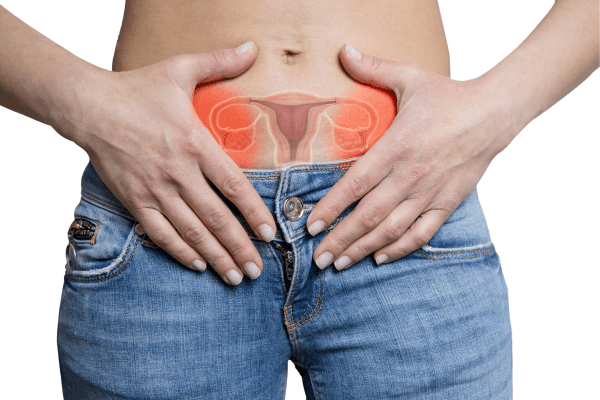Ovarian cysts are common occurrences in individuals assigned female at birth, often causing concerns about their impact on fertility and the ability to conceive. Understanding the relationship between ovarian cysts and pregnancy is essential for those navigating fertility journeys. Let’s explore the potential implications and dispel common misconceptions surrounding this topic.
- Introduction
Ovarian cysts are fluid-filled sacs that can develop on the ovaries. While many cysts are benign and cause no symptoms, questions often arise about their influence on fertility, particularly when individuals are trying to conceive.
Types of Ovarian Cysts
Functional Cysts
– Follicular Cysts: Develop when an ovarian follicle fails to release an egg during the menstrual cycle.
– Corpus Luteum Cysts: Form after the follicle releases an egg and the empty sac seals with fluid.
Pathological Cysts
– Endometriomas: Cysts caused by endometriosis affecting the ovaries.
– Dermoid Cysts: Contain tissue like hair, skin, or teeth.
III. Impact on Fertility
Functional Cysts
– Limited Impact: Most functional cysts do not significantly affect fertility and often resolve on their own.
Pathological Cysts
– Endometriomas: May interfere with ovarian function and reduce egg quality.
– Dermoid Cysts: Rarely impact fertility unless they grow significantly.
Detecting and Monitoring Ovarian Cysts
Routine pelvic exams and imaging studies, such as ultrasounds, help detect ovarian cysts. Monitoring the size, type, and characteristics of the cysts is crucial in determining their potential impact on fertility.
Fertility Treatments and Ovarian Cysts
Individuals undergoing fertility treatments, such as in vitro fertilization (IVF), may have concerns about existing ovarian cysts. Fertility specialists assess the situation and determine whether the cysts require treatment before proceeding with assisted reproductive technologies.
Surgical Intervention
In some cases, surgical intervention may be recommended to address large or persistent cysts. The goal is to preserve ovarian function while minimizing potential obstacles to fertility.
VII. Pregnancy with Ovarian Cysts
Natural Conception
– Possible: Many individuals with ovarian cysts conceive naturally without intervention.
Assisted Reproductive Technologies
– Considerations: Fertility specialists tailor treatment plans, considering the presence of ovarian cysts and their potential impact on fertility treatments.
VIII. When to Seek Medical Advice
Individuals trying to conceive should seek medical advice if:
– They experience persistent pelvic pain.
– Ovarian cysts are identified during routine examinations.
– Fertility challenges arise.
Conclusion
In conclusion, having ovarian cysts does not necessarily mean one cannot conceive. The impact on fertility varies depending on the type, size, and characteristics of the cysts. Seeking guidance from a healthcare professional, especially a fertility specialist, is crucial for understanding individual circumstances and formulating an appropriate plan for conception.
For those seeking fertility-related solutions, renowned fertility specialists like Dr. S. Vyjayanthi, MD, DGO, DNB, MRCOG, MSC (Embryology UK), CCT(UK), at MotherToBe, provide expert guidance and personalized care. While ovarian cysts may pose concerns, advancements in fertility treatments offer hope and solutions for individuals on their journey to parenthood.
FAQs
- Can ovarian cysts prevent pregnancy?
– While some ovarian cysts, especially endometriomas, may impact fertility, many individuals with cysts conceive naturally. Seeking medical advice is crucial for understanding individual circumstances.
- Do all ovarian cysts require treatment before trying to conceive?
– Not necessarily. Functional cysts often resolve on their own. However, pathological cysts may require monitoring or treatment, depending on their characteristics and impact on fertility.
- How are ovarian cysts detected?
– Routine pelvic exams and imaging studies, such as ultrasounds, help detect ovarian cysts. Monitoring their size and characteristics is essential for determining their potential impact on fertility.
- Can I undergo fertility treatments if I have ovarian cysts?
– Fertility specialists assess the situation and determine whether ovarian cysts require treatment before proceeding with assisted reproductive technologies like in vitro fertilization (IVF).
- When should I seek medical advice regarding ovarian cysts and fertility?
– Individuals trying to conceive should seek medical advice if they experience persistent pelvic pain, ovarian cysts are identified during routine examinations, or fertility challenges arise.

